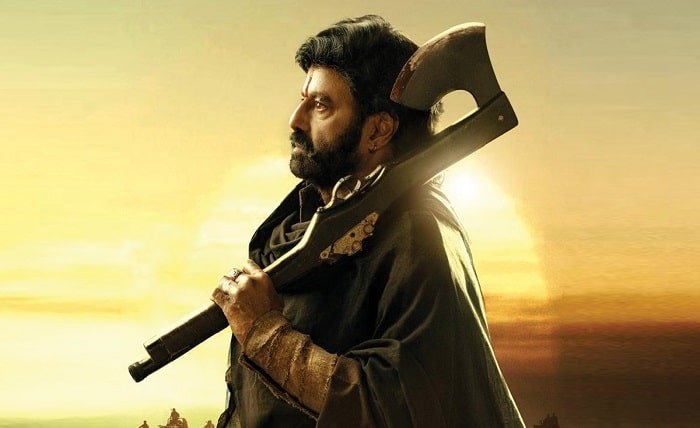Daaku Maharaaj: Unraveling the Legend of India’s Most Notorious Outlaw

In the annals of India’s rich history, there are many figures who have left an indelible mark—some for their bravery, some for their cunning, and others for their notoriety. One such figure is Daaku Maharaaj, a name that resonates with intrigue, mystery, and controversy. Known for his dacoity and fearless exploits, Daaku Maharaaj is not just a historical figure, but a legend that has sparked numerous debates, stories, and folklores over the years.
A daaku refers to a bandit or outlaw, often a leader of a group that engages in robbery or violent activities. However, Daaku Maharaaj‘s story is unique, as it has been molded by popular culture and historical accounts into a larger-than-life persona. His life, full of adventure and rebellion, continues to captivate audiences, and in this blog post, we will explore the tale of Daaku Maharaaj, shedding light on his rise, exploits, and the lasting legacy he has left in India’s folklore.
Who Was Daaku Maharaaj?
The name Daaku Maharaaj is often associated with infamous outlaw figures who lived during a time when India was under British colonial rule, though exact details of his life remain unclear. Some believe that he was a leader of a dacoit gang that roamed the countryside, robbing affluent landlords and British officials. His band of outlaws became legendary for their audacious raids, and over time, Daaku Maharaaj was seen not just as a mere criminal but as a symbol of resistance to colonial oppression.
Unlike other dacoits of the time, who were typically seen as purely criminal figures, Daaku Maharaaj was often romanticized in local folklore. He was viewed as a kind of Robin Hood figure—someone who fought against injustice and redistributed wealth to the poor. His actions earned him the loyalty of the common people, who saw him as a hero standing against the oppressive forces of the British empire and the corrupt local elites.
The legacy of Daaku Maharaaj is shrouded in mystery, and much of what is known about him is based on stories, songs, and accounts passed down through generations. Despite the romanticized image of the man, historians continue to debate whether he was truly a folk hero or simply a ruthless criminal whose deeds were blown out of proportion by myth.
The Rise of Daaku Maharaaj: A Life of Rebellion
To understand Daaku Maharaaj’s rise to prominence, we must consider the social and political climate of India during his time. India’s colonial history is marked by rebellion, unrest, and resistance to British rule. During the early stages of the British occupation, many regions were ruled by zamindars and local aristocrats who were often seen as corrupt and oppressive. These factors created fertile ground for bandits, outlaws, and rebels to emerge.
Daaku Maharaaj was likely born in a rural area where the hardships of the peasants were evident. As a young man, he witnessed the cruelty of landlords and the exploitation of the common folk. It is said that the injustices he witnessed during his early life ignited a deep sense of anger within him. Driven by a desire to fight against tyranny, Daaku Maharaaj became involved in dacoity, taking up arms in a battle against both the colonial authorities and the local elites.
As his band of followers grew, so did his notoriety. His tactics were daring, often involving well-coordinated raids on wealthy landlords, British officials, and their establishments. However, unlike many other criminals, Daaku Maharaaj was not just in it for personal gain. It is said that he would often redistribute the loot to the oppressed, garnering admiration and support from the local villagers.
Though his actions were criminal in nature, Daaku Maharaaj became a symbol of defiance in a time of national struggle. For the common people, he embodied the resistance to colonial rule, and many believed he was fighting for a better future.
The Daring Raids and Exploits of Daaku Maharaaj
The tales of Daaku Maharaaj’s exploits are legendary, and they have become an integral part of India’s rich folklore. His raids were described as daring and meticulously planned, with Daaku Maharaaj often using guerrilla tactics to elude British authorities. His ability to move swiftly through the countryside, evade capture, and strike at opportune moments made him a formidable adversary.
One of the most famous stories about Daaku Maharaaj revolves around a raid on a heavily fortified mansion belonging to a British official. According to the account, Daaku Maharaaj and his men infiltrated the estate under the cover of night, overpowering the guards and looting the wealth. The raid was executed with such precision that it left the authorities stunned and unable to retaliate.
There are also stories of Daaku Maharaaj stealing from the rich and giving to the poor, much like a modern-day Robin Hood. These acts of generosity endeared him to the masses, and many saw him as a protector of the weak and downtrodden. His legacy was not just built on his criminal acts but on his ability to create a sense of hope and empowerment among those who were oppressed.
However, as with all legends, the line between truth and myth becomes blurred over time. While these exploits may have been exaggerated, they continue to shape the way Daaku Maharaaj is remembered today.
Daaku Maharaaj’s Conflict with the British Authorities
As Daaku Maharaaj’s notoriety grew, so did the efforts by the British authorities to capture him. The British government, which was already struggling with widespread resistance across India, saw Daaku Maharaaj as a significant threat to their rule. They sent out troops to capture him, offering bounties for his capture, but Daaku Maharaaj’s knowledge of the terrain and his ability to remain elusive made him a difficult target.
The conflict between Daaku Maharaaj and the British became a game of cat-and-mouse. The authorities would set up elaborate traps, only for Daaku Maharaaj to outwit them, escaping once again into the forests and hills. His intelligence network, consisting of loyal supporters and sympathizers among the local population, made it almost impossible for the British to get a clear lead on his movements.
In the eyes of the British, Daaku Maharaaj was nothing more than a criminal and a threat to colonial rule. However, for the people who supported him, he was a symbol of resistance, someone who fought against the oppression of the British empire. The ongoing battle between Daaku Maharaaj and the British authorities became a microcosm of the larger struggle for independence taking place across India.
The Fall of Daaku Maharaaj: The End of an Era
Despite his cunning and resourcefulness, Daaku Maharaaj’s reign of rebellion was not to last forever. As with many outlaws of the time, his eventual downfall came when betrayal struck. According to some accounts, one of his trusted men turned against him, leading to his capture. Others claim that Daaku Maharaaj was surrounded by British forces during one of his raids and eventually succumbed to a violent confrontation.
The capture and death of Daaku Maharaaj marked the end of an era. While his criminal activities were condemned by the authorities, his death sparked mixed emotions among the local population. Some mourned the loss of their folk hero, while others saw his demise as a victory for the British colonial forces.
Nevertheless, the legend of Daaku Maharaaj did not die with him. Over the years, stories of his exploits continued to circulate, and his name became synonymous with resistance, bravery, and defiance. He was immortalized in folk songs, plays, and literature, where his legacy as an outlaw-hero persisted.
Daaku Maharaaj in Popular Culture
In the years following his death, the figure of Daaku Maharaaj evolved into a cultural symbol. Writers, filmmakers, and musicians drew inspiration from his life, creating narratives that further embellished his legend. Films, television shows, and plays have portrayed him as a larger-than-life character, focusing on his defiance against colonial rule, his sense of justice, and his rebellious nature.
In modern times, Daaku Maharaaj has become a symbol of resistance and a romanticized figure in popular culture. His legacy lives on in the stories told by the people, particularly in rural regions where his influence was most strongly felt. His tale continues to captivate audiences, serving as a reminder of the struggle for justice and freedom.
Conclusion
The story of Daaku Maharaaj is one of intrigue, adventure, and rebellion. Though much of his life remains shrouded in mystery, the legend he created continues to thrive in the collective memory of the people. Whether seen as a hero or a criminal, Daaku Maharaaj played a significant role in shaping India’s folklore and the narrative of resistance against colonial oppression.
His legacy serves as a reminder of the complex nature of historical figures—often a mix of both good and bad, hero and villain. The figure of Daaku Maharaaj will undoubtedly continue to inspire generations to come, and his name will forever be etched in the history of India as one of the most fascinating figures of the colonial era.
FAQs
1. Who was Daaku Maharaaj?
Daaku Maharaaj was an infamous dacoit (bandit) in India during the colonial period, known for his daring raids and resistance against British rule. He is often depicted as a folk hero who fought against the oppression of the British and local elites.
2. Was Daaku Maharaaj a hero or a criminal?
The perception of Daaku Maharaaj varies. To the British, he was a criminal and a threat to colonial rule. However, to the local villagers, he was seen as a hero who redistributed wealth and fought for justice.
3. How did Daaku Maharaaj become famous?
Daaku Maharaaj became famous due to his audacious raids on British officials and landlords, his ability to evade capture, and his generosity towards the poor, which made him a popular figure in Indian folklore.
4. What is the legacy of Daaku Maharaaj?
Daaku Maharaaj’s legacy lives on in India’s cultural memory, particularly in rural areas where he was once a symbol of resistance and defiance against British rule. His story has been immortalized in films, songs, and literature.
5. What happened to Daaku Maharaaj?
The exact details of Daaku Maharaaj’s death are unclear, but it is believed he was either betrayed or captured by the British authorities. His demise marked the end of his reign as an outlaw, but his legend continues to be celebrated in Indian culture.




